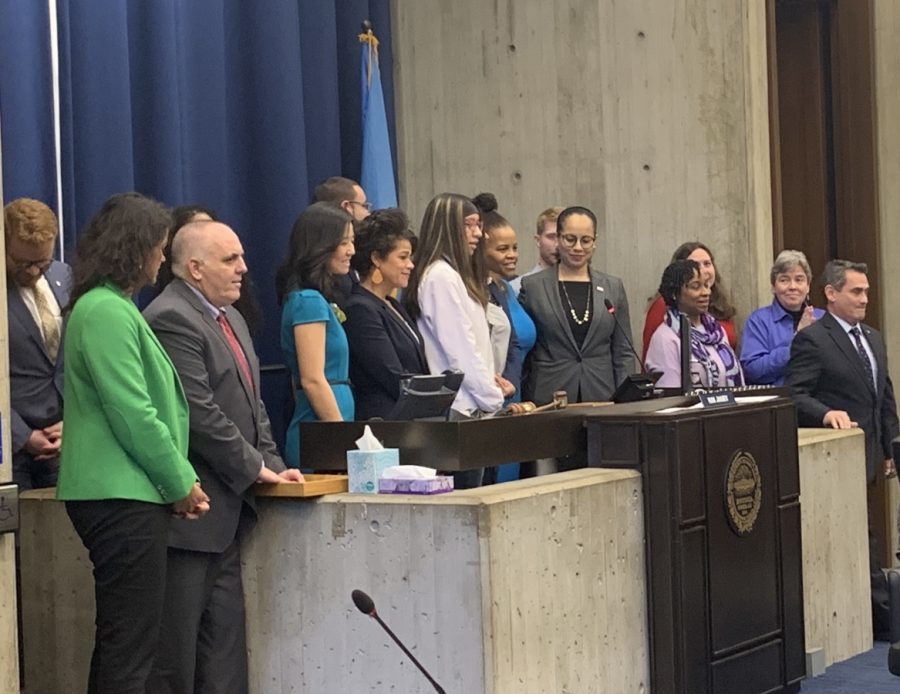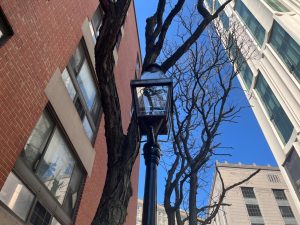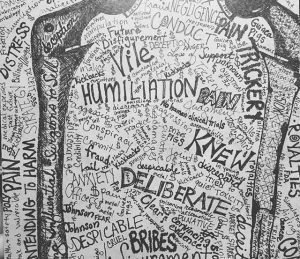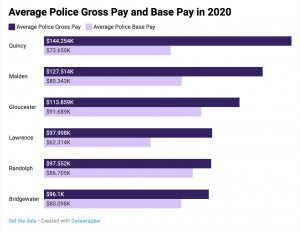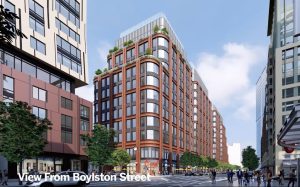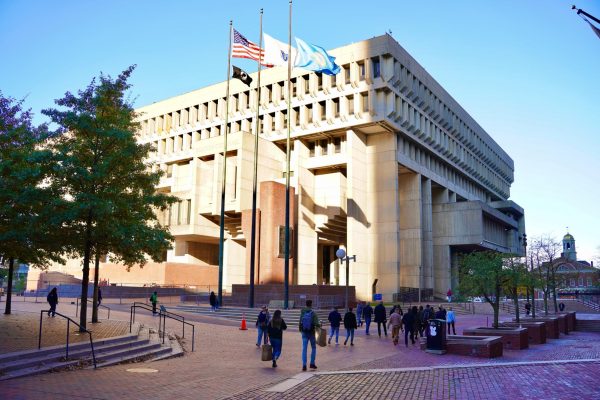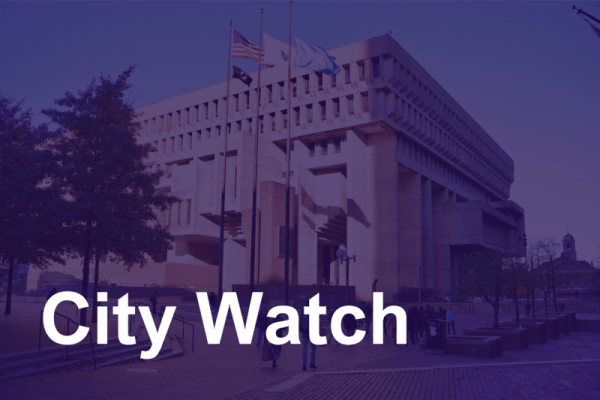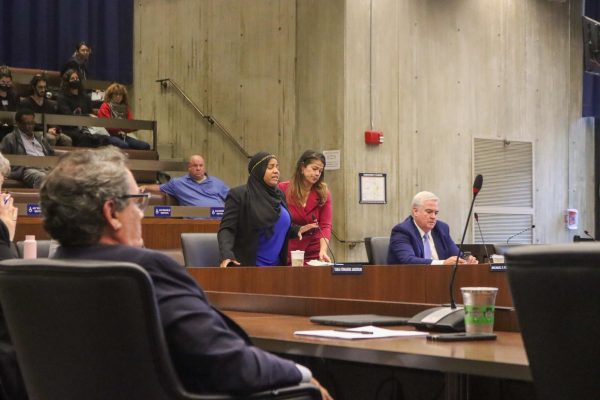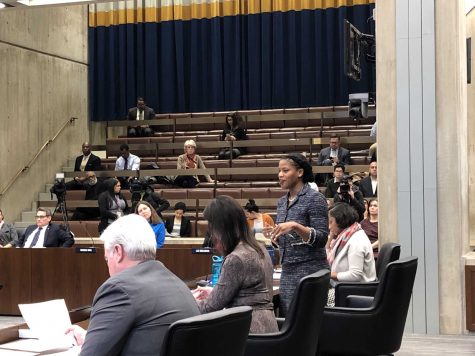Boston City Council meeting March 11, 2020
Photo: Jordan Erb
Boston City Council meeting March 11, 2020, at City Hall.
March 12, 2020
All councilors were present for the Boston City Council meeting on March 11, 2020, where the following dockets were presented and discussed.
Docket #0495
Councilors Liz Breadon and Frank Baker offered an order for a hearing to consider designating Allston Village as an Arts Innovation District.
Councilors Breadon and Baker hope to designate Allston Village as an Arts Innovation District. In doing so, they would like to create more artist-friendly outdoor spaces that could host small open-air performances and develop artist studios.
“Over the coming months I will work with residents in Allston Village, the artist community and several other nonprofits, such as Allston Main Streets, and local businesses to develop interest and come up with plans to move this forward,” Breadon said.
The docket passed and was referred to the committee on arts, culture, tourism and special events.
Docket #0497
Councilor Annissa Essaibi-George offered a resolution in support of the I AM Bill.
The resolution was created to support the I AM Bill currently in the Massachusetts Legislature, an act to increase access to menstrual products in prisons, homeless shelters and public schools. At the state level, this bill would offer free products in every school, every homeless shelter and every prison in Massachusetts.
“Today, we’re pushing further for the state to go even deeper -– to make sure that in all aspects where the state is, that women, or those who identify as women, feel that they are seen, heard and that there is no resource that is not available to them,” said Councilor Edwards.
Councilor Essaibi-George added Councilor Edwards to the resolution as an original co-sponsor. The resolution passed.
Docket #0498
Councilor Essaibi-George offered an order for a hearing regarding gender parity in the naming of public art and places.
“As we name public places, parks and streets and create statues and art, we do this all the time to commemorate important figures in our community and Boston’s history,” said Essaibi-George.
Only six of Boston’s 125 public schools are named for women, she said. Two of nearly 400 properties owned by Parks and Recreation are named for women, and none of the Boston Public Library’s branches are named after women.
Essaibi-George would like to take stock of how many women and people of color are currently being commemorated in Boston’s public spaces, and examine future opportunities to honor women and people of color.
The docket passed. It was referred to the committee on arts, culture, tourism and special events.
Docket #0499
Councilor Essaibi-George offered an order for a hearing to review the women-specific outreach and healthcare programming to combat the opioid crisis.
“We all know that the opioid crisis continues to weigh on Boston, and although there’s a lot of good work being done by our practitioners on the ground, we know that we are missing touching so many of our women dealing with substance-use disorders,” Essaibi-George said.
Substance-use disorders affect women differently than they do men, she said. Drug addiction can intersect with pregnancy, sexuality and gender, and women are at an elevated risk for spreading Hep-C and HIV as a result.
The docket passed, and was referred to the committee of public health.
Docket #0501
Councilor Essaibi-George offered an order for a hearing regarding the Boston Police Department Crime Lab.
“The criminal justice reform bill had important provisions that required rape kits to be tested within 30 days,” Essaibi-George said. “While this is a huge step in the right direction for survivors, it’s a big ask for our crime lab, which is already under-resourced, and has insufficient space to meet their current caseload efficiently.”
The hearing would give the Boston Police Department a chance to share with the council what they need to meet the demands being placed on them.
“I do want to note that our crime lab is highly accredited, and seen as the model for crime labs. We do need to make sure they have the capacity and the ability to do the work they need to do, both on the rape kit front and also on unsolved homicides that we talk a great deal about,” she said.
The docket was passed and referred to the committee of public safety and criminal justice.

